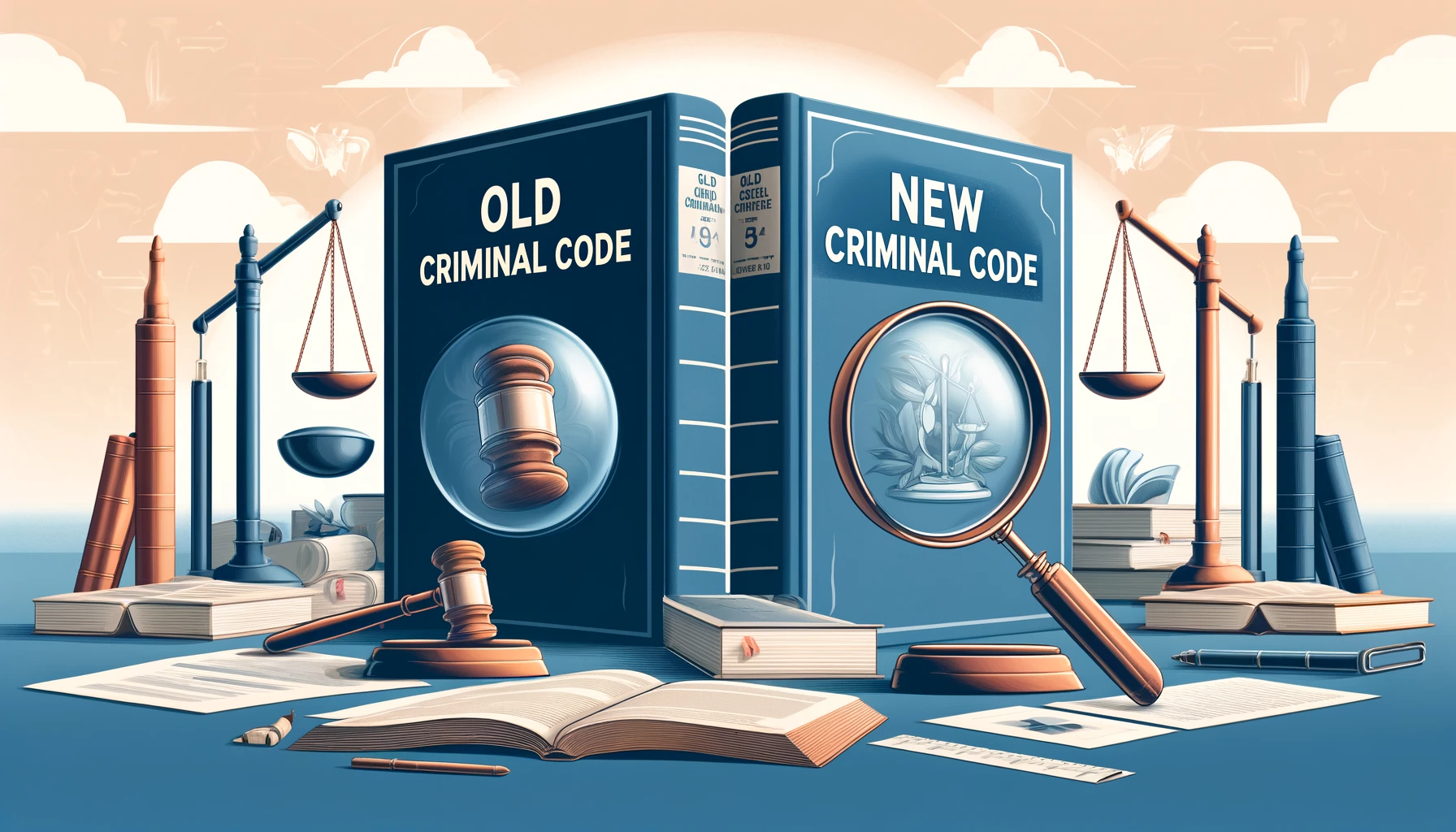Legal Literacy – This article explores the differences between the old Criminal Code (KUHP) and the new Criminal Code. Want to know what sets them apart? Check out the following explanation!
Introduction
The enactment of the new Criminal Code (KUHP) on December 2, 2022, marks a new chapter in the history of Indonesian criminal law. Replacing the old Dutch colonial-era KUHP, the new code is expected to bring positive changes to the criminal justice system.
However, this transition has not been without controversy. The stark differences between the two codes have sparked heated debate among the public and legal experts. Understanding these differences is key to grasping the direction and impact of criminal law reform in Indonesia.
Crucial Differences and Their Impacts
Legality Principle in the Old Criminal Code and New Criminal Codes:
- Old Criminal Code: Adopts a strict legality principle, which means only acts explicitly regulated by law can be punished. Analogies are not allowed.
- New Criminal Code: Still adheres to the strict legality principle, but with some exceptions. Analogies are allowed in certain situations, such as to protect the public interest.
Impact:
- The New Criminal Code offers more flexibility for judges in sentencing, but it could lead to legal confusion and inconsistent verdicts.
- It is crucial to ensure that the application of analogies is cautious and measured so as not to undermine the legality principle.
Capital Punishment in the Old and New Criminal Codes:
- Old Criminal Code: Capital punishment is one of the main types of punishment.
- New Criminal Code: Capital punishment is no longer a main punishment, but a special punishment imposed as an alternative.
Impact:
- The New Criminal Code reflects a shift in the paradigm of sentencing, emphasizing humanity and human rights.
- The application of capital punishment is limited and only as a last resort, taking various factors into consideration.
Fine Punishments in the Old and New Criminal Codes:
- Old Criminal Code: Fines generally function as an alternative punishment.
- New Criminal Code: Fines can be a principal or additional punishment.
Impact:
- Fines are expected to be a more effective tool for deterrence and for compensating victims.
- It is important to ensure that the amount of the fine does not exceed the financial ability of the convicted person and considers the principle of social justice.
Criminal Responsibility in the Old and New Criminal Codes:
- Old Criminal Code: Focuses on individual fault (dolus and culpa).
- New Criminal Code: Introduces the concept of corporate criminal liability.
Impact:
- The New Criminal Code encourages corporate accountability for legal violations.
- Enforcement of corporate criminal liability must be accompanied by clear regulations and mechanisms.
New Criminal Offenses in the Old and New Criminal Codes:
- New Criminal Code: Regulates several new criminal offenses, such as cybercrime, environmental crimes, and terrorism.
Impact:
- The New Criminal Code responds to the changing times and increasingly complex legal needs.
- Law enforcement for new criminal offenses requires education and training for law enforcement officers.
Diversion in the Old and New Criminal Codes:
- New Criminal Code: Provides room for diversion, i.e., resolving cases outside the criminal justice process.
Impact:
- Diversion is expected to promote a restorative justice approach and help resolve cases more efficiently.
- The effectiveness of diversion and the readiness of infrastructure and human resources need to be further studied.
Language in the Old and New Criminal Codes:
- Old Criminal Code: Uses complex and convoluted language.
- New Criminal Code: Uses simpler and more understandable language.
Impact:
- The New Criminal Code is expected to improve public access to legal information.
- It is important to ensure that the simplification of language does not reduce the clarity and precision of legal meaning.
Philosophy in the Old and New Criminal Codes:
- Old Criminal Code: Based on retributive justice (retaliation).
- New Criminal Code: Based on restorative justice (restoring justice).
Impact:
- The New Criminal Code emphasizes recovery and rehabilitation rather than revenge.
- Implementing restorative justice requires a change in mindset and culture within the criminal justice system.
In addition to the differences above, the author presents further differences in a table format.
| Aspect | Old Criminal Code (Wetboek van Strafrecht voor Nederlands Indie) | New Criminal Code (Law No. 1 Year 2023 on the Criminal Code) |
|---|---|---|
| Year of Enactment | January 1, 1918 | 3 years after enactment (2026) |
| Source of Law | Wetboek van Strafrecht voor Nederlands Indie (WvS) | Original and based on Pancasila and the 1945 Constitution |
| Structure | 3 Books: General Provisions, Crimes, and Offenses | 2 Books: General Provisions and Criminal Offenses |
| Approach | Classical (revenge-oriented) | Modern (recovery-oriented) |
| Legal Subject | Human only | Human and corporate |
| Type of Punishment | 5 types: death, imprisonment, confinement, fine, and confiscation | 4 types: death, imprisonment, fines, and community service |
| Death Penalty | Basic punishment | Alternative special punishment |
| Criminal Threat | Written in detail | More flexible with range of punishment |
| Delict | Closed | Open, allowing for new offenses |
| Evidence | Based on valid evidence | More open, including electronic evidence |
| Diversion | Not regulated | Expressly regulated |
| Restorative Justice | Not regulated | Expressly regulated |
| Customary Criminal Law | Not recognized | Recognized and accommodated |
Conclusion
The striking differences between the old and new Criminal Codes reflect efforts to modernize Indonesia’s criminal justice system. Despite some potential doubts and challenges, the New Criminal Code is expected to bring.
That’s an explanation of the Differences between the Old and New Criminal Code.
Visit the Legal Literacy Indonesia page and follow Instagram @literasihukumcom for an upgrade to better legal knowledge!






